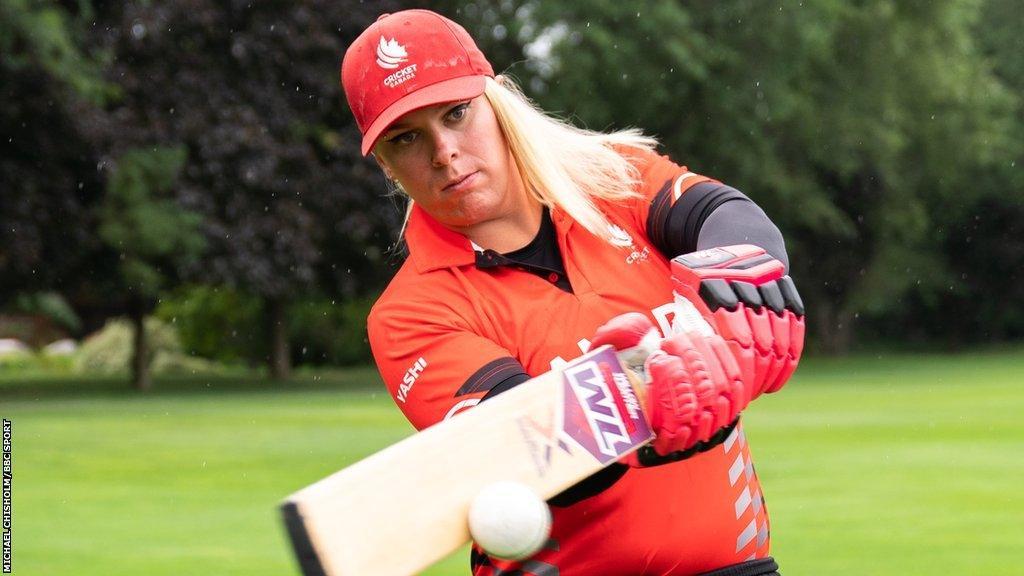- Advertisement -
The England and Wales Cricket Board (ECB) has announced a new policy barring transgender women from participating in women’s cricket at all levels, sparking widespread debate across the sporting community. The decision, reported by ESPN, marks a significant development in the ongoing discussion over inclusion and fairness in competitive sports. This move by the ECB comes amid growing tensions globally as sports organizations grapple with balancing the rights of transgender athletes and maintaining equitable competition.
ECB policy change sparks debate over inclusivity and fairness in women’s cricket
The recent directive by the England and Wales Cricket Board (ECB) to prohibit transgender women from participating in women’s cricket at all levels has ignited a fierce debate within the sports community. Advocates for inclusivity voice concerns that this policy not only marginalizes transgender athletes but also contradicts the broader goals of equality in sports. Critics argue that the rule fails to recognize individual circumstances and the progress made in understanding gender identity, potentially discouraging participation among transgender individuals who seek to compete fairly and safely.
Supporters of the ECB’s decision emphasize the need to maintain a level playing field, highlighting physical differences as a key factor in their rationale. They cite the importance of protecting opportunities and fairness for cisgender women athletes who have historically faced unequal access to competitive platforms. The growing polarization is evident in the varied reactions from players, officials, and fans alike, with calls for clearer guidelines that balance inclusivity with competitive integrity.
- Inclusivity advocates push for policies incorporating hormone levels and transition timelines.
- Traditionalists stress physical fairness and safeguarding cisgender women’s participation.
- Neutral observers call for ongoing research and dialogue to inform future regulations.
| Stakeholder Group | Primary Concern | Suggested Approach |
|---|---|---|
| Transgender Athletes | Access and fair inclusion | Hormone-based eligibility criteria |
| Cisgender Women Athletes | Protection of competitive fairness | Clear, consistent participation rules |
| Governing Bodies | Regulatory clarity and safety | Scientific research and transparent policies |
Impact of the ban on transgender athletes and responses from advocacy groups
The ECB’s decision to bar transgender women from participating in women’s cricket at any level has sparked significant repercussions within the sporting community. Transgender athletes who have trained rigorously for years now face exclusion, raising concerns about their mental health and future opportunities in the sport. Several players expressed feelings of disenfranchisement and questioned the fairness of a policy that, according to critics, overlooks individual capabilities in favor of blanket restrictions. The policy also threatens to discourage young transgender individuals from pursuing cricket altogether, potentially impacting the diversity and inclusivity of grassroots programs.
Advocacy groups have been quick to voice opposition to the ban, emphasizing the importance of inclusivity and human rights in sports. Leading organizations have called for evidence-based policies that balance fairness with the right to participate, urging governing bodies to engage in dialogue rather than enforce outright bans. Among their key arguments:
- Transgender rights: Emphasize the importance of recognizing and respecting gender identity within competitive sports.
- Scientific scrutiny: Advocate for nuanced approaches considering hormone levels and individual physiology rather than categorical exclusions.
- Equal opportunity: Stress the detrimental effects of exclusionary policies on community trust and social cohesion.
| Group | Response | Proposed Action |
|---|---|---|
| Stonewall | Criticized ban as discriminatory | Call for policy review with stakeholder input |
| Sport England | Advocated for inclusive participation | Develop guidelines based on hormone testing |
| TransAthlete UK | Highlighted mental health impact | Support programs for transgender athletes |
Experts call for clear guidelines balancing competitive integrity with transgender rights
Leading voices in sports ethics and human rights have emphasized the urgent need for transparent policies that respect both competitive fairness and the rights of transgender athletes. They argue that without clear, evidence-based guidelines, sports organizations risk alienating communities and fostering confusion among players and officials alike. Balancing biological factors with social inclusion requires nuanced approaches that go beyond blanket bans or unconditional acceptance.
- Clarity: Establishing well-defined criteria for participation based on scientific research and fair competition.
- Inclusivity: Ensuring transgender athletes are treated with dignity while maintaining the spirit of sport.
- Transparency: Involving athletes, experts, and advocates in policy formulation for mutual understanding.
Experts also point to the importance of ongoing review processes that adapt as new data emerges. Many suggest frameworks incorporating both hormone levels and performance metrics to create a spectrum rather than rigid categories. Below is a summary of key factors often considered in such frameworks:
| Factor | Considerations |
|---|---|
| Hormone Levels | Testosterone thresholds to ensure physiological fairness |
| Performance Data | Assessment of speed, strength, and endurance |
| Duration of Transition | Time elapsed post hormone therapy or surgery |
| Legal & Ethical | |
| Legal & Ethical | Compliance with human rights laws and respect for athlete privacy |
If you’d like, I can also help you format or expand on any other part of your content!
Wrapping Up
The ECB’s decision to bar transgender women from participating in women’s cricket across all levels marks a significant and controversial development within the sport. As debates surrounding inclusion, fairness, and competitive integrity continue to unfold, this ruling is likely to spark further discussion both within cricketing circles and the broader sporting community. Stakeholders and observers will be closely watching how the ECB’s policy impacts players, teams, and the ongoing conversation about gender and sports.
- Advertisement -


